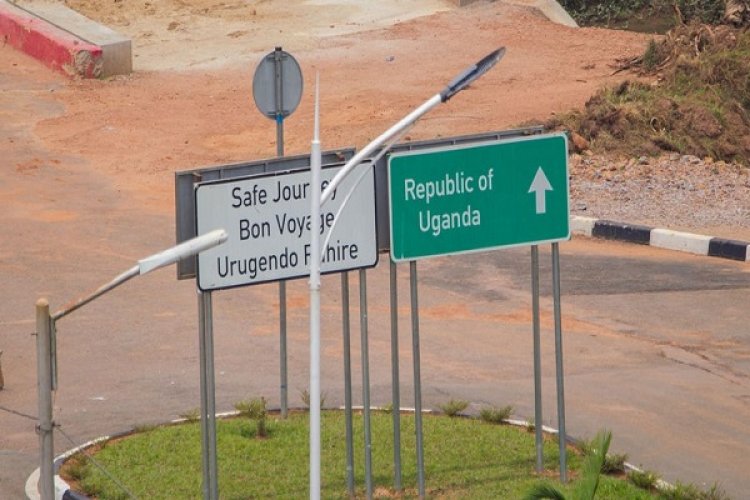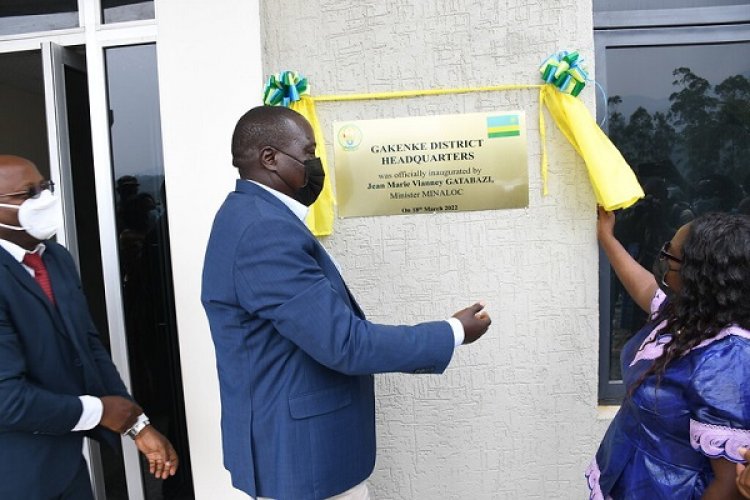Rwanda’s Auditor General has yet again exposed how mismanagement of government contracts, project delays or abandonment, alongside idle asset cost taxpayers billions last year, dampening hopes of achieving key government goals on time.
Details of the audit report for the year ended June 30, 2021, which auditor general Alexis Kamuhire has presented to Parliament this Thursday afternoon, show at least 37 contracts worth Rwf201 billion in 28 public entities and projects were delayed for a period of up to six years.
To this, adds the number of contracts and projects valued at over Rwf965 million which either stalled or were abandoned in seven of the audited public entities.
This resulted in increased cost of government projects and lack of value for money which adversely affect service delivery to citizens, states Mr. Kamuhire’s report signed April 28, 2022.
“Entities did not fully realize the planned objectives, and the government did not obtain a return on investment in uncompleted works,” his report reads.
Assets worth Rwf37.2 billion lie idle
From the audit work, the report indicates 88 cases of idle assets worth Rwf37.2 billion were identified in 49 public institutions. They comprise 54 new cases worth Rwf28.8 billion, and 34 cases worth Rwf8.4 billion flagged by last year’s audit by Mr. Kamuhire’s predecessor Obadiah Biraro.
Most of the assets in question have been idle for a period ranging between 80 days and 13 years, according to the audit findings.
“These idle assets imply that the government is not getting value for money from procured assets,” auditor general notes.
Fraud
The audit noted that public entities had not recovered public resources fraudulently utilized totaling Rwf2.3 billion.
They include stolen assets, funds used for personal gain and not accounted for, funds and materials diverted and not reaching intended beneficiaries, as well as taxpayers’ monies withdrawn using forged documents or signatures.
Previous audits had estimated the total loss to fraud cases at over Rwf2.5 billion.
Failure to recover fraudulently used public funds constitutes a loss to the government, notes the just released audit report.
Other findings
- Government agencies did not deduct taxes amounting to Rwf431.6 million while others did the deductions but did not remit withheld taxes amounting to Rwf26 billion to RRA as required by the tax law.
- Review of investments worth Rwf115.9 billion made by Rwanda Social Security Board (RSSB) in 12 companies indicated that they were not generating the expected returns and dividends to RSSB, and some were undergoing liquidation. This will have negative bearing on the long-term financial sustainability of the pension scheme, noted the auditor general.
- Rwanda Agriculture Board (RAB) was paying astronomical Rwf3.8 million per day to hire excavation machine from a contractor for supply and installation of irrigation infrastructure in different locations in Rwanda. The report indicates this led to wastage of public funds estimated at Rwf1.4 billion.
- Rwanda Energy Group (REG) could not achieve the national electrification target of connecting 71.5 percent of households by June 2021. Review of REG annual performance shows overall households’ access rate to electricity is below target.
Positive trend
Generally, the analysis of the latest Auditor general’s report points to a decline in amount of funds lost to unnecessary or unlawful expenditure over last three years to Rwf3.2 billion in 2021, from Rwf5.3 billion and Rwf8.1 billion in 2020 and 2019 respectively.
Similarly, there has been a reduction in both wasteful expenditures and funds diverted or fraudulently utilized.
Wasteful expenditures fell to Rwf1.6billion from Rwf4 billion and Rwf6.1 billion in 2020 and 2019 respectively, while funds diverted or fraudulently utilized stood at Rwf52 million from Rwf57.1 million in 2020 and Rwf412 million in 2019.
However, unsupported and partially supported expenditures rose to Rwf229.3 million in 2021 from Rwf141.4 million in 2020, and Rwf1.2 billion from Rwf1.1 billion respectively.
The percentage of entities that got adverse opinions decreased from 15 per cent in 2019 to 8 per cent in 2021.
Based on these findings, auditor general Alexis Kamuhire’s report concludes that there has been a positive trend in the overall level of accountability and transparency over the period.










